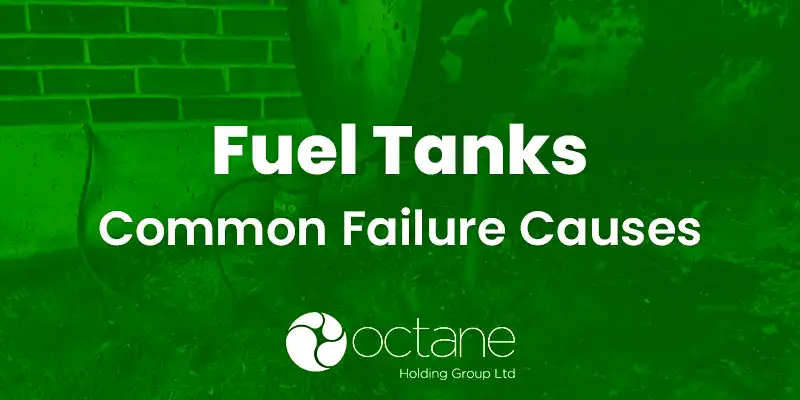Latest News
Keep up to date with latest news and insights from Octane Holdings

Prevent Common Fuel Tank Failures | Octane Holding Group
Most Common Fuel Tank Failures and Precautions Against Them
Fuel tanks sit at the heart of effective operation for industries ranging from transport depots and airports to manufacturing and business premises. Even though a properly installed tank may last for decades, even the best systems are prone to failures down the line. Neglecting minor issues may lead to costly repairs, downtime, and environmental hazards. Understanding the most common fuel tank failures and taking action before they escalate is what will make your systems consistent and secure.
Rust and Corrosion in Fuel Tanks
Metal fuel tanks rust over time. Water, condensation, and chemical reaction with the fuel stored inside corrode the tank walls over a period of time. Rust undermines the structural integrity and may, over a period of time, lead to leaks or complete tank failure. Preventive inspections, anti-corrosion coatings, and continuous monitoring are required to avoid expensive repairs and ensure long-term dependability.
Leaks and Failing Seals
Leaks typically occur at tank joints, seams, or seals. They are compromised by age, vibration, or inadvertently in routine use. A small leak may have serious safety and environmental impact. Leaks detected early save fuel, prevent business loss, and ensure environmental regulation.
Structural Damage
Fuel tanks can also be damaged by accidental contact by vehicles, machines, or natural events such as flooding or landslide. Dents, cracks, or compromised areas in the tank predispose the tank towards leaks and contamination. Regular inspection forestalls them from becoming costly problems.
Fuel Contamination
Fuel contamination is a quite common issue. Water, sediment, and debris are allowed into tanks through leaky covers, vents, or caps. Corrupted fuel harms pumps, filtration units, and engines that burn it. Regular cleaning, proper sealing, and close monitoring can prevent contamination and protect businesses from unexpected downtime.
Vent and Overfill Failures
Impeded vents or faulty vents, along with overfill prevention system malfunction, can result in pressure accumulation in tanks. This would result in fuel overflow or in extreme cases, tank explosion. Proper maintenance and checks of venting and overfill systems are critical to safe, compliant fuel storage.
Pump and Pipework Failures
A tank is just as good as the system it’s piped into. Pumps, hoses, and valves can become defective, crack, or fail, producing leaks, spillage, or decreased fuel delivery. Regular maintenance and inspection of pipework connected to your tanks ensure fuel can move safely and uninterrupted throughout your facility.
How Octane Holding Group Can Help
At Octane Holding Group, we understand your business relies on fuel systems. Our experienced engineers perform complete tank inspections, cleaning, and planned maintenance to prevent failure before it occurs. From depot fuel tanks to aviation systems, we provide practical, proven solutions engineered to keep your operations efficient, safe, and in compliance with industry standards.
Take Action Today
Don’t let a small issue become a big problem. Contact Octane Holding Group today to arrange a fuel tank inspection or maintenance visit. Our specialists will work with you to keep your systems running at their best, protect your investment, and keep you up to code.

